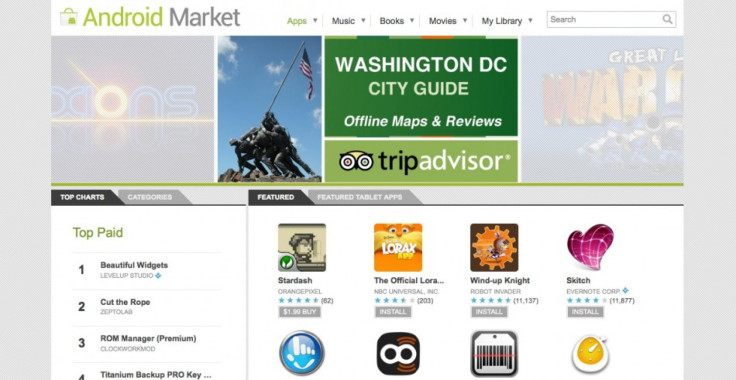Android Malware Soars Due to Lack of Google Oversight, Says Juniper

Malware research group Juniper Global Threat Center posted on its blog Wednesday on its finding of a whopping 472 percent increase in Android malware samples since July. Not only have instances of Android malware identification increased exponentially since the summer, says Juniper, but the methods of attack are growing more sophisticated.
The immediate cause, says the firm, is the absence of a review process for the Android Market, the virtual marketplace where users may purchase Android-based apps: These days, it seems all you need is a developer account, that is relatively easy to anonymize, pay $25 and you can post your applications. With no upfront review process, no one checking to see that your application does what it says, just the world's largest majority of smartphone users skimming past your application's description page with whatever description of the application the developer chooses to include.
Contributing to the issue is Android's rise in popularity. As the Google-led operating system gains an ever-widening lead over other operating systems such as Apple iOS, RIM and Windows Mobile 7, malware developers are naturally attracted to the growing pool of potential targets.
Despite this, Juniper says Android is not necessarily an inherently less secure platform, but suffers instead from the absence of a gatekeeping mechanism: The main reason for the malware epidemic on Android is because of different approaches that Apple and Google take to police their application stores. Android's open applications store model, which the lacks code signing and an application review process that Apple requires, makes it easy for attackers to distribute their malware.
Though both companies pursue an open-source approach when it comes to software development, Google has received criticism in the past for the degree to which the Android Market is left unmoderated, while Apple has conversely suffered its own share of complaints from those who find its highly curated environment stifling. For many developers, the relative freedom of the Android Market is a refreshing alternative to the approvals gauntlet they must run before achieving publication in the iTunes App Store. Yet, the increasing security threats posed by unregulated apps may force Google to take steps to begin tightening Android Market publication standards.
© Copyright IBTimes 2024. All rights reserved.











